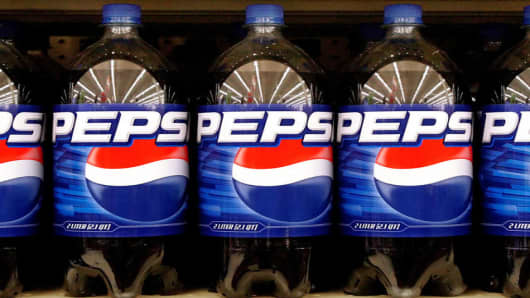PepsiCo reported better-than-expected quarterly profit on Thursday, as higher sales of its snacks and beverages and a weak dollar overshadowed the impact of increased raw material costs.
The world's second-largest soft drink maker, whose shares rose in premarket trading, said net income for the third quarter ended on Sept. 8 rose to $1.74 billion, or $1.06 per share, from $1.49 billion, or 89 cents per share, a year earlier.
Excluding a tax benefit, PepsiCo earned 99 cents per share, beating analysts' average estimate of 96 cents per share, according to Reuters Estimates.
Quarterly revenue rose 11% to $10.17 billion.
PepsiCo was aided by the weak dollar, which boosted the value of sales in other currencies when they were converted to dollars for inclusion on the company's income statement.


